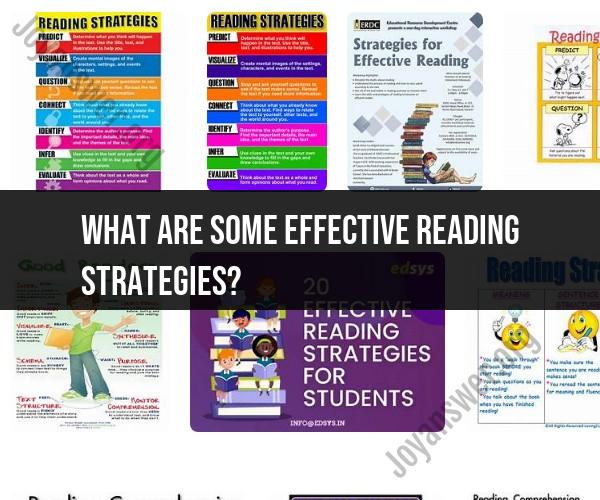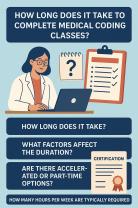What are some effective reading strategies?
Effective reading strategies can significantly improve comprehension and retention of the material. Whether you're reading a textbook, a novel, or any other type of written content, here are some strategies to enhance your reading experience:
Preview the Text:Before you start reading, take a few moments to scan the text. Read the title, headings, subheadings, and any summaries or bolded text. This will give you an overview of the content and help you focus on key points.
Set a Purpose for Reading:Determine why you're reading the material. Are you reading for information, entertainment, or to answer specific questions? Having a purpose in mind can guide your reading and help you stay engaged.
Take Notes:As you read, jot down notes, highlight key points, or underline important passages. This can be especially helpful for textbooks and informational texts.
Use Sticky Notes or Annotations:If you're reading a physical book, consider using sticky notes or annotating the text with comments, questions, or insights. This encourages active engagement with the material.
Ask Questions:Periodically ask yourself questions about the content. What is the main idea? What are the supporting details? Formulating questions can help you stay focused and monitor your comprehension.
Visualize the Content:Try to create mental images of what you're reading. This can help you better understand and remember the material, especially in novels and descriptive texts.
Summarize as You Go:After reading a section or a chapter, pause and summarize what you've just read in your own words. This reinforces your understanding.
Chunk Information:Break down long paragraphs or complex sentences into smaller, more manageable chunks. This can make the content more digestible.
Revisit and Review:If you're reading a lengthy text, consider going back and reviewing what you've read in previous sessions. This reinforces your memory and comprehension.
Take Breaks:Don't try to read for hours without breaks. Short, frequent breaks can help maintain your focus and prevent mental fatigue.
Eliminate Distractions:Find a quiet, well-lit place to read and minimize distractions. Turn off your phone or use apps that block distracting websites.
Use a Dictionary or Online Resources:If you encounter unfamiliar words or concepts, don't hesitate to look them up. Understanding the vocabulary is crucial for comprehension.
Join a Reading Group or Discussion:Engaging in discussions with others about what you're reading can deepen your understanding and offer different perspectives.
Practice Speed Reading Techniques:Speed reading methods can help you increase your reading speed while maintaining comprehension. Techniques like "skimming" and "scanning" can be useful in specific contexts.
Review and Reflect:After finishing the material, take some time to review what you've read and reflect on its significance or relevance. This step enhances long-term retention.
Read Regularly:Consistent reading practice can improve your reading skills and overall comprehension. Make reading a habit.
Remember that effective reading is not just about finishing a text but understanding and retaining the information. Experiment with different strategies to find the ones that work best for you in various reading situations.
Effective Reading Strategies: A Comprehensive Guide
Reading is a fundamental skill that is essential for success in school, the workplace, and in life. However, not everyone is an effective reader. Some people struggle to understand what they read, while others read too slowly or inefficiently.
If you want to improve your reading skills, there are a number of strategies that you can use. Here is a comprehensive guide to effective reading strategies:
Active Reading Techniques for Better Comprehension
Active reading is a process of engaging with the text and thinking about what you are reading. It is more than just passively scanning the words on the page.
Here are some active reading techniques that can help you to better understand what you read:
- Ask questions: As you read, ask yourself questions about the text. What is the main point of the author? What are the key supporting ideas? What are the author's conclusions?
- Make predictions: Before you start reading a section of text, make predictions about what you will read. This will help you to focus your attention and to better understand the text.
- Take notes: Taking notes is a great way to remember what you read. You can take notes in a notebook or on a computer.
- Summarize: At the end of each section of text, summarize the main points in your own words. This will help you to check your understanding and to identify any areas where you need to re-read.
Speed Reading Methods to Improve Reading Efficiency
Speed reading is a technique for reading faster without sacrificing comprehension. There are a number of different speed reading methods, but most of them focus on the following:
- Reducing eye movements: When we read, our eyes move across the page in a series of jerks. Speed reading methods teach us to reduce the number of eye movements we make, which can help us to read faster.
- Expanding our peripheral vision: When we read, we typically focus on one word at a time. Speed reading methods teach us to expand our peripheral vision so that we can see more words at a time.
- Eliminating subvocalization: Subvocalization is the process of saying the words in our heads as we read. Speed reading methods teach us to eliminate subvocalization, which can help us to read faster.
Note-Taking and Highlighting as Reading Aids
Note-taking and highlighting can be helpful reading aids. However, it is important to use them effectively.
When taking notes, be sure to focus on the main points of the text. Don't try to write down everything you read. Instead, focus on the key concepts and supporting ideas.
When highlighting, be selective. Don't highlight everything you read. Instead, highlight only the most important information.
Developing Critical Reading Skills for Analysis
Critical reading is the ability to analyze and evaluate what you read. It involves thinking about the author's purpose, the evidence that is presented, and the conclusions that are drawn.
Here are some tips for developing critical reading skills:
- Identify the author's purpose: What is the author trying to achieve by writing this text? Are they trying to inform, persuade, or entertain?
- Evaluate the evidence: Does the author provide sufficient evidence to support their claims? Is the evidence credible?
- Question the conclusions: Are the author's conclusions logical and supported by the evidence?
By using the strategies outlined above, you can improve your reading skills and become a more effective reader.
Here are some additional tips for effective reading:
- Find a quiet place to read where you will not be interrupted.
- Set realistic reading goals. Don't try to read too much at once.
- Take breaks when you need them. Get up and move around, or close your eyes for a few minutes.
- Read regularly. The more you read, the better you will become at it.
Reading is an essential skill that can benefit you in many ways. By following the tips above, you can improve your reading skills and become a more effective reader.












